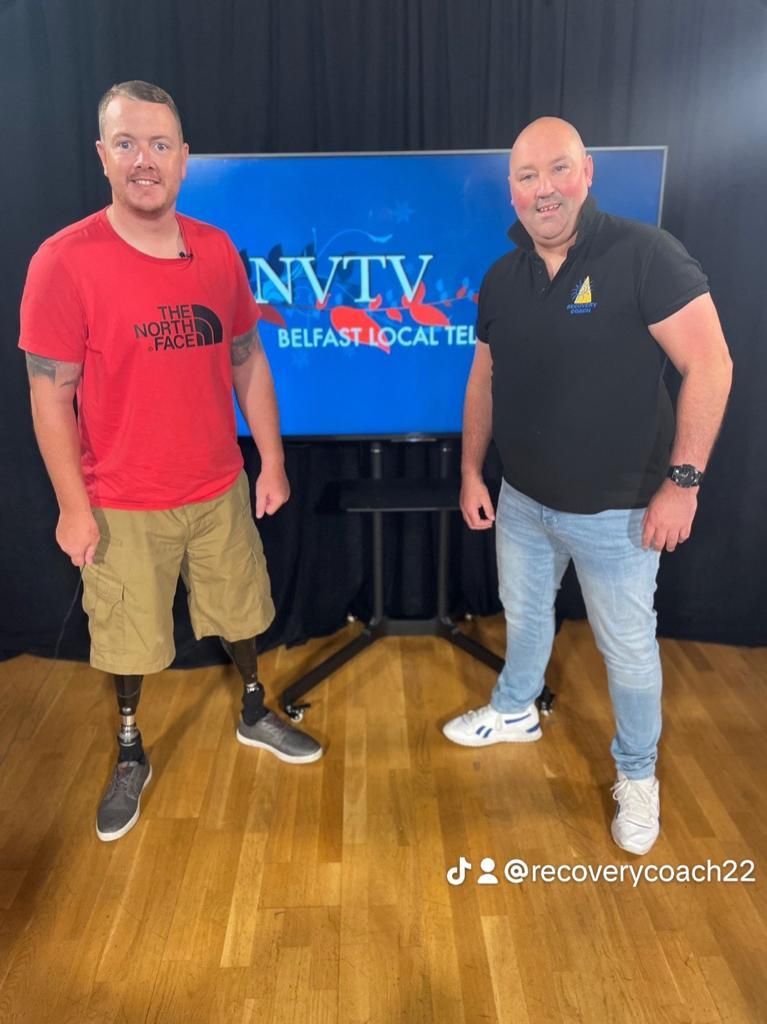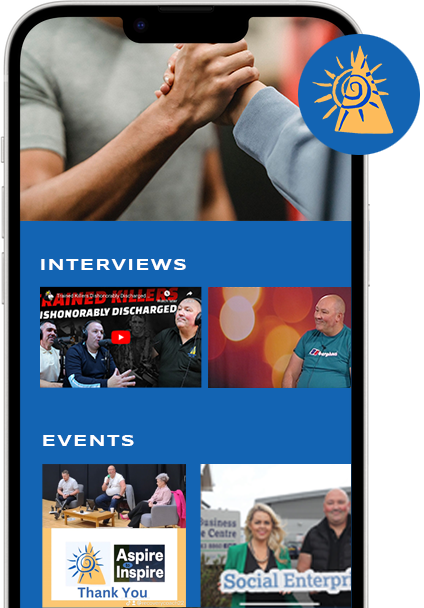NEWS
Useful articles, videos and podcasts
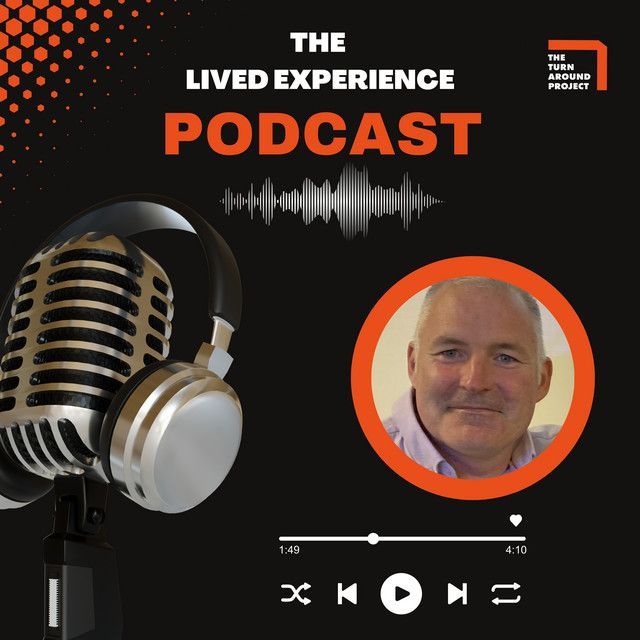
Listen as Darren recounts a childhood growing up in West Belfast and becoming Inspired by seeing the Army on the streets. Pursuing a career as a soldier he was guarding the deceased Queens Elizbeth's residencies in the 90s. However, getting involved with alcohol at a young age and continuing this throughout his duration in the service was to have a devastating outcome. The influence of alcohol and violence soon became a real problem and he found himself in prison. Due to his offence being carried while intoxicated he was required to attend AA. This was to plant the initial seed towards recovery and initiating a path of change. Darren states "aspire to inspire before you expire." Turn this up loud. Listen here https://open.spotify.com/episode/3tpZbzXcwxXVwtI0iQX0LD
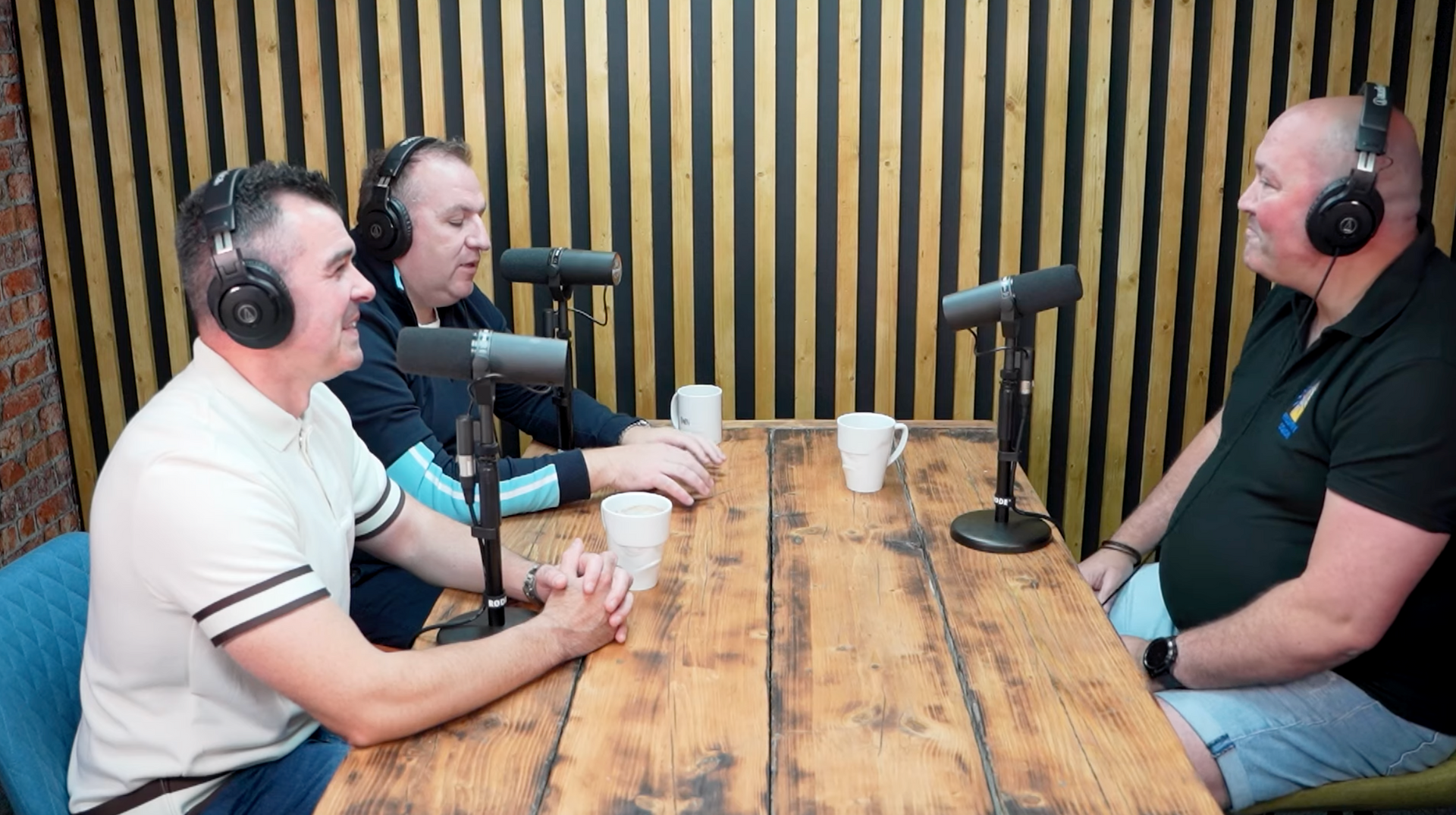
In this gripping and emotional episode, we sit down with Darren Linton, a man whose life story is nothing short of a roller-coaster ride from darkness to redemption. Darren takes us on a raw journey through the tumultuous chapters of his life, from a turbulent past as a football hooligan to facing the abyss of a potential prison sentence for his violent actions. Darren shares his unwavering determination to break free from the chains of his past and confront the demons that threatened to destroy him.
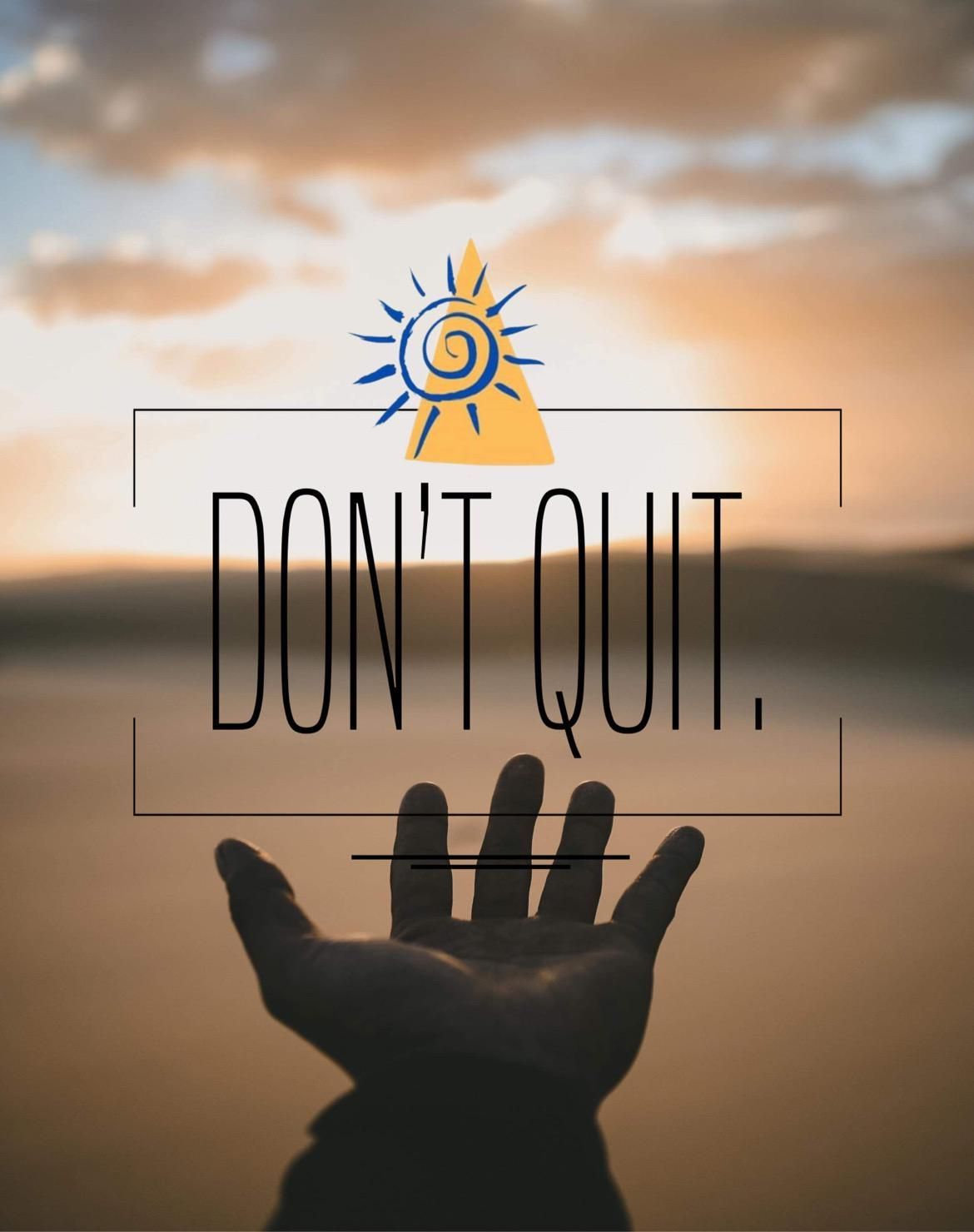
If your destructive behaviours have got you into trouble in the past, there are ways to change them. Whether it’s overcoming addiction, managing anger or breaking harmful habits here are a few strategies you can use to make positive changes and lead a positive, healthier, more fulfilling life. It can be challenging, but it is entirely possible with a bit of self-awareness, motivation and perseverance. Recognise and acknowledge your behaviour: The first step in changing destructive behaviours is to become aware of them. Take an honest look at your actions, thoughts, and emotions, and identify the behaviours that are causing harm to yourself or others. Acknowledge the negative consequences and understand that change is necessary but your choice. Set clear goals: Clearly define behaviours you want to change and set SMART goals – Specific, Measurable, Achievable, Realistic, and Time-bound. Make sure all your goals are realistic and achievable, as this will help maintain your motivation throughout the process. Break down your goals into smaller, manageable steps to make the change more attainable. Understand your triggers and habits: Reflect on situations, emotions, or circumstances that trigger your destructive behaviours. Identify the patterns and underlying causes behind these actions. Understanding the triggers will enable you to develop strategies to cope with them effectively. One of my personal favourites is the “Ah, f*** it” syndrome, where we decide to throw in the towel way too easily. Remember, it is easy to resort to what you know. Change is difficult, but worth it. Replace destructive behaviours with positive alternatives: Once you have identified your triggers and habits, work on finding healthy alternatives to replace your destructive behaviours. For example, if you tend to engage in emotional eating when stressed, find alternative coping mechanisms like exercise, meditation, or talking to a friend. Replace harmful habits with positive ones. Beating up a tractor tyre in the gym with a large hammer was a personal favourite when feeling the ‘rage’. Punching some innocent bystander always felt appealing but ‘got me nowhere’. Seek support: Changing destructive behaviours can be challenging, and it helps to have a support system in place. Reach out to friends, family, or a support group who can provide encouragement, guidance, and accountability. Consider seeking professional help, such as therapy or counselling, to gain additional support and guidance. A good, honest, straight-talking chat with a trusted friend is absolute gold when expressing real feelings and emotions, and you feel better for it. Practice self-care: Self-care plays a vital role in changing destructive behaviours. Engage in activities that promote your physical, mental, and emotional wellbeing. Practice relaxation techniques, drink a minimum of two litres of water a day, get regular exercise (three times a week is a great start), prioritize sleep, and maintain a healthy diet. Taking care of yourself will help reduce stress and enhance your ability to make positive changes. To this day meditation, visualising, and breathing exercises work a treat for me. Learn new skills: Develop new skills and acquire knowledge that will aid in changing behaviour. This could involve learning effective communication techniques, stress management strategies, problem and conflict management skills, or any other relevant skills that will empower you to make healthier choices. Learning to hold your tongue in particular situations (e.g. with significant others) will pay dividends. Stay accountable: Hold yourself accountable for your actions and your own progress. Keep a journal (harder to do in prison) to track your thoughts, emotions, and behaviours. Regularly review your progress and adjust as needed. Celebrate your successes and learn from setbacks. Share your goals and progress with a trusted individual who can help keep you accountable. Practice patience and resilience: Changing destructive behaviours takes time and effort. It is important to be patient with yourself and understand that setbacks are a natural part of the process. Be resilient and persistent, even if you face challenges along the way. Remember that change is a journey, and every step in the right direction will count. Celebrate milestones: As you make progress and achieve goals, take time to celebrate your milestones. Reward yourself for your hard work and commitment. Celebrating your successes will reinforce positive behaviours and motivate you to continue making positive changes. Changing destructive behaviours is not an overnight process, but by executing these strategies consistently, you can gradually transform your life for the better. Remember to be kind to yourself and seek professional help if needed. With determination and perseverance, you can break free from destructive behaviours and create a healthier, more fulfilling future for you and those around you. ‘Nothing grows in a comfort zone.’
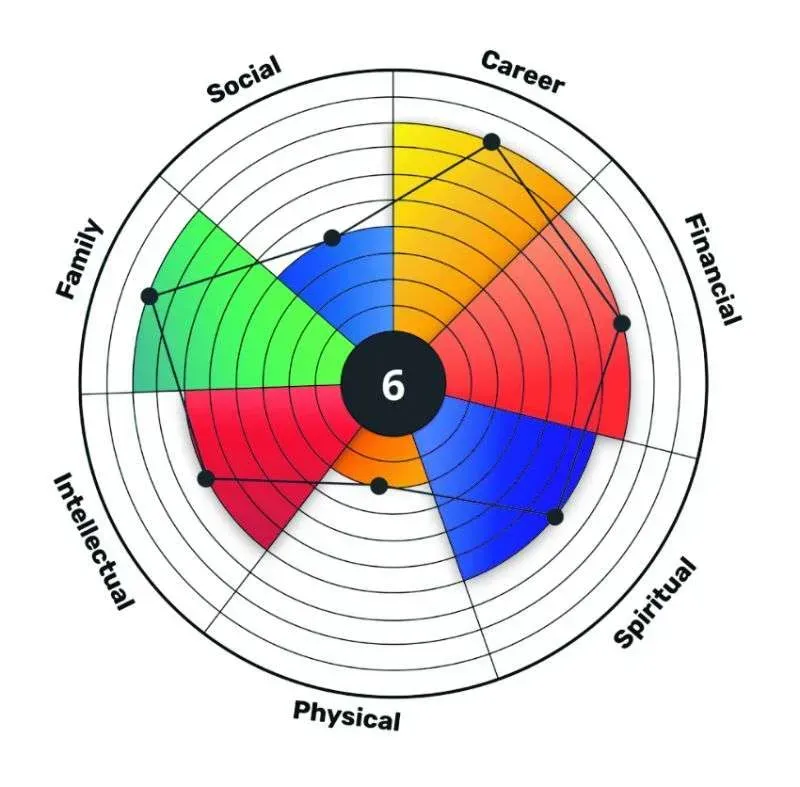
Embarking on a journey of personal growth and self-improvement requires a clear understanding of your current life, being real with yourself about where you are, looking at your satisfaction levels, and working out which areas need attention. The Wheel of Life is a powerful coaching tool that provides a visual representation of your life’s various elements, enabling you to identify imbalances and take action towards a more fulfilling life. It is used by life coaches with their clients – but you can also use it on your own. Here’s how to use this tool properly. The Wheel of Life consists of a circle divided into segments, each representing a dimension such as career, health, relationships, finances, personal development and more. You name your own segments. The height of the bar in each segment corresponds to the level of satisfaction or fulfilment you feel in that area. By evaluating each segment, you gain valuable insights into which areas are thriving and which require attention. As a minimum use: Relationships – with your significant other, children, wider family, and friends. Personal Development – such as education, spiritual (as you understand this), stopping negative self-talk, having a morning routine, keeping a journal. Health – including exercise, weights, Yoga, running or walking, nutrition, water intake. Fun/Recreation – association time, pool table … what do you enjoy? Do more, get better, maybe start a discussion group on personal development with like-minded individuals. Assessing your life Once you’ve drawn your Wheel of Life, take a moment to reflect on each element and rate your level of satisfaction on a scale of 1 to 10 (with 1 being the worst it can be, 10 being the best it could ever be). Be honest and consider how content you are with each aspect of your life. Outline your ratings by drawing a line within each segment, creating a visual representation of your current life balance. No one has it perfect. Add up all the scores, and divide by the number of sections. In the example shown, there are 7 sections and the scores add up to 41. Divide 41 by 7 and you get 5.85. Round this up to the nearest whole number, which is 6 – and this is your average score, which goes in the middle of the wheel. Simples! Identifying imbalances Once you’ve plotted your ratings, take a step back and examine the wheel as a whole. Notice any unevenness or gaps. Imbalances may arise when certain areas are neglected or receive excessive focus at the expense of others. For instance, you may find that your personal development is flourishing, but your health or relationships are suffering. Identifying these imbalances helps you pinpoint areas that require your attention… straightforward but effective. Goal-setting and action-planning With a clear understanding of imbalances, it is time to set meaningful goals and develop an action plan. Select a specific aspect of your life that you wish to improve, and set measurable and realistic goals accordingly. Break down these goals into actionable steps, and create a timeline for achieving them. By focusing on one or two dimensions at a time, you can avoid feeling overwhelmed and increase your chances of success. Coach tip: Personally, I work backwards. First I set the goal then I create stepping stones backwards from my goal which will lead to my first step. Monitoring progress and reassessment Regularly review your progress and reassess your Wheel of Life (my suggestion is fortnightly or monthly). As you make changes and act, adjust your ratings and observe how the scores change over time. Celebrate your achievements, and adjust your goals as needed. By regularly reassessing and adjusting, you can cultivate a harmonious balance that aligns with your values and aspirations, leading to personal growth and happiness. Remember, personal growth is an ongoing daily process, and the Wheel of Life serves as a compass, guiding you towards a more balanced, purposeful and fulfilling life. Give it a try, you never know – you might surprise yourself! Military planning teaches us that no initial plan stands up to the first attack. So, if you find that you fall at the first hurdle upon your release from prison, then it makes good sense to have a ‘Plan B’. If you decide to use the Wheel of Life, don’t be too hard on yourself, as it is only a guide. But used well, it can help. Remember my saying: ‘What gets measured gets managed’.

Self-sufficiency is key to a good life says Coach Daz In today’s world there is a massive industry called coaching. I am not just talking about recovery coaching but the wider field such as life coaches, grief coaches, sports coaches, divorce coaches and mindset coaches. Way too many to mention here, but you get the idea. Connection In 1996 there were only 1,000 registered coaches with the International Coaching Federation (ICF), jump forward to 2012 and this number increased to 13,000. This is an industry which is growing worldwide and on a grand scale. However, as the world moves forward with more and more concerns around substance use, leading to substance use disorders, addiction, drug problems or alcoholism, it’s important to recognise that more needs to be done. There is a whole world of sobriety out there, which at times you may need guiding through or into. Once you hit 18 years-old no one really holds your hand, so being self-sufficient is key. But we all need help from time to time. The opposite to addiction is connection. I read recently that the United States of America holds 5% of the world’s population, yet they consume 50% of the world’s cocaine. The USA’s defence budget runs into billions of dollars and that is equalled by what they spend on alcohol consumption. That book was written in 1991, so to be fair that may have changed. I wonder what their budget on rehab centres and their prison bill is. Types of recovery coaches There are many types of recovery coaches, some of which do it voluntarily and some do get paid for their valuable skills and experience. Examples and names of recovery coaches are known as sober buddies; sponsors; peer recovery support specialists; recovery life coaches; sober companions; sober escorts and prison recovery coaches. These guys can be professionals, however a majority, I feel, would have personal experience. For me, I have personal experience and professional experience and am a recovery coach or, as clients refer to me affectionately ‘Coach Daz’. I believe America is more in tune with recovery coaches, yet the UK is hard on its heels. Moreover, given the stigma around addiction, there is a trust and a confidentiality that is so important and takes time to build up. I may refer to my personal experience in future articles or use my professional experience, but I will never break anyone’s anonymity, even under torture. What does a recovery coach do? Put simply, there is a difference between coaches and the likes of psychotherapy. I believe psychotherapy focuses on the past and deep-seated trauma. Coaches, on the other hand, take into consideration the person as a whole. We ask questions that uncover and discover your own truth, which leads to you taking action on your recovery. We cannot or will not diagnose you or tell you that you have a problem. We will assess you and start where you are at, and we go from there. In the next article I will provide a simple assessment you can do yourself and look at just some of the options available. Basically, recovery coaches support people to remain sober and prevent relapse. I look forward to writing more and I hope you get something from any article I write. Although I take recovery very seriously, it’s also so important to have some fun on the journey together. Remember; the only thing that is instant in recovery is the coffee.
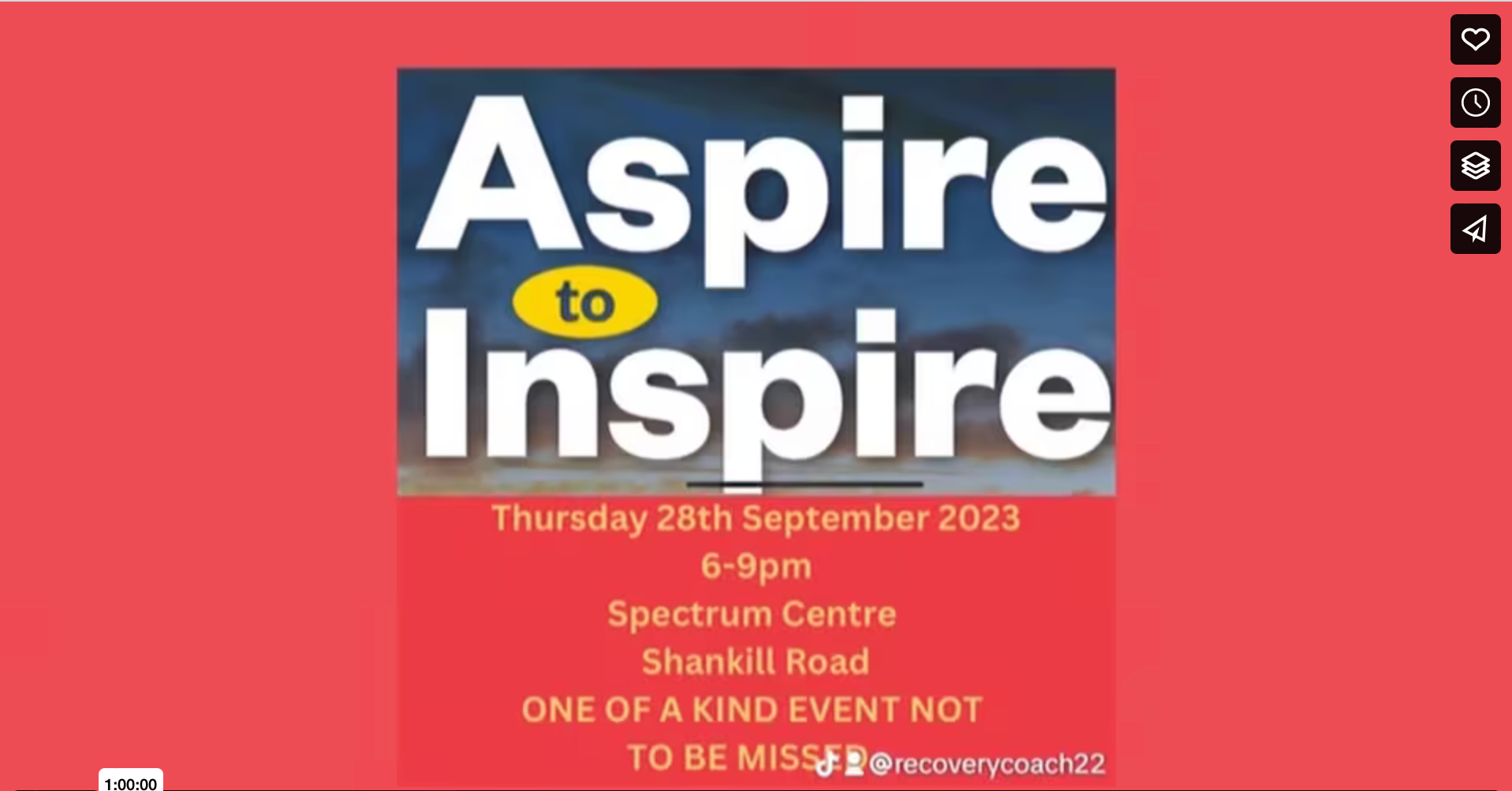
Aspire to Inspire is an extraordinary event that celebrates inspiring individuals from diverse backgrounds, providing a platform for them to share their stories and ignite a flame of inspiration. Through captivating speeches and discussions, this event empowers attendees to dream big, break barriers, and make a positive impact on the world.

